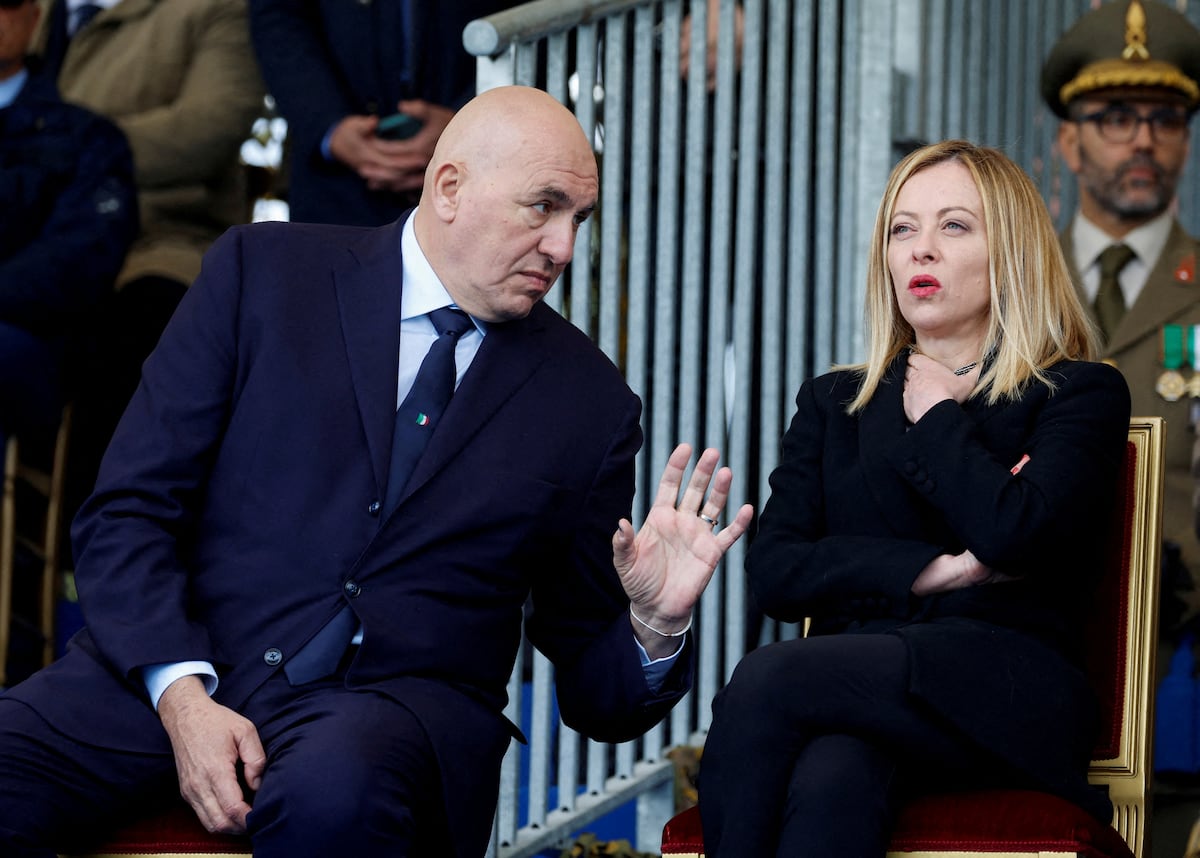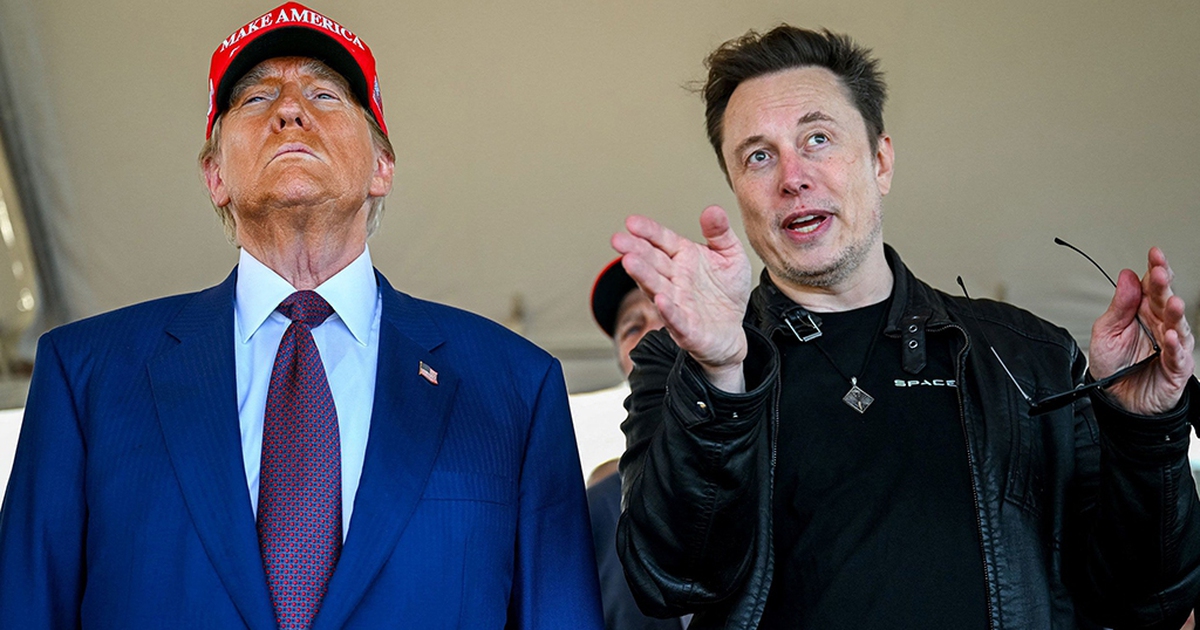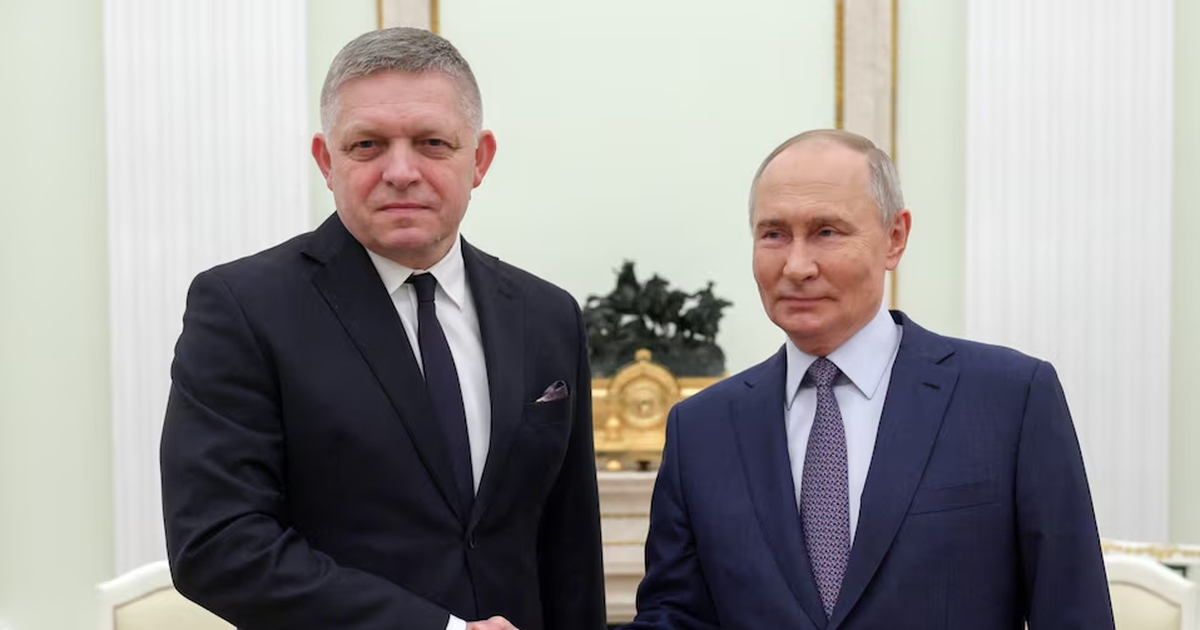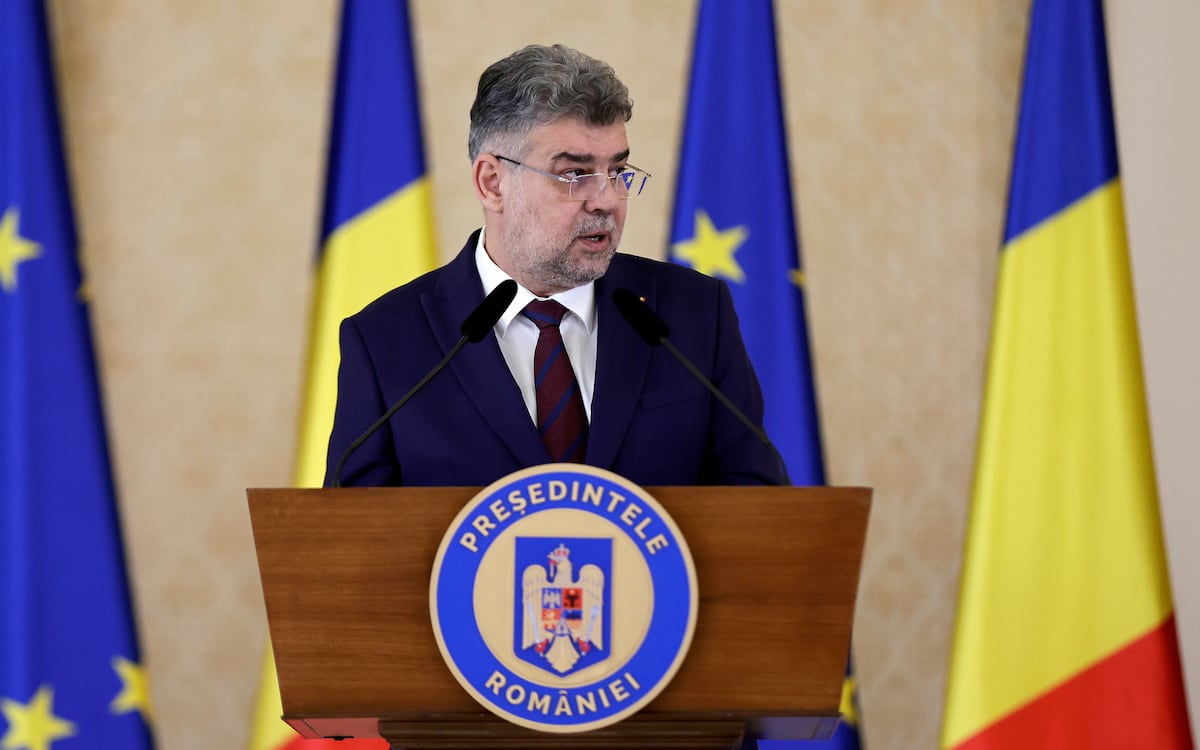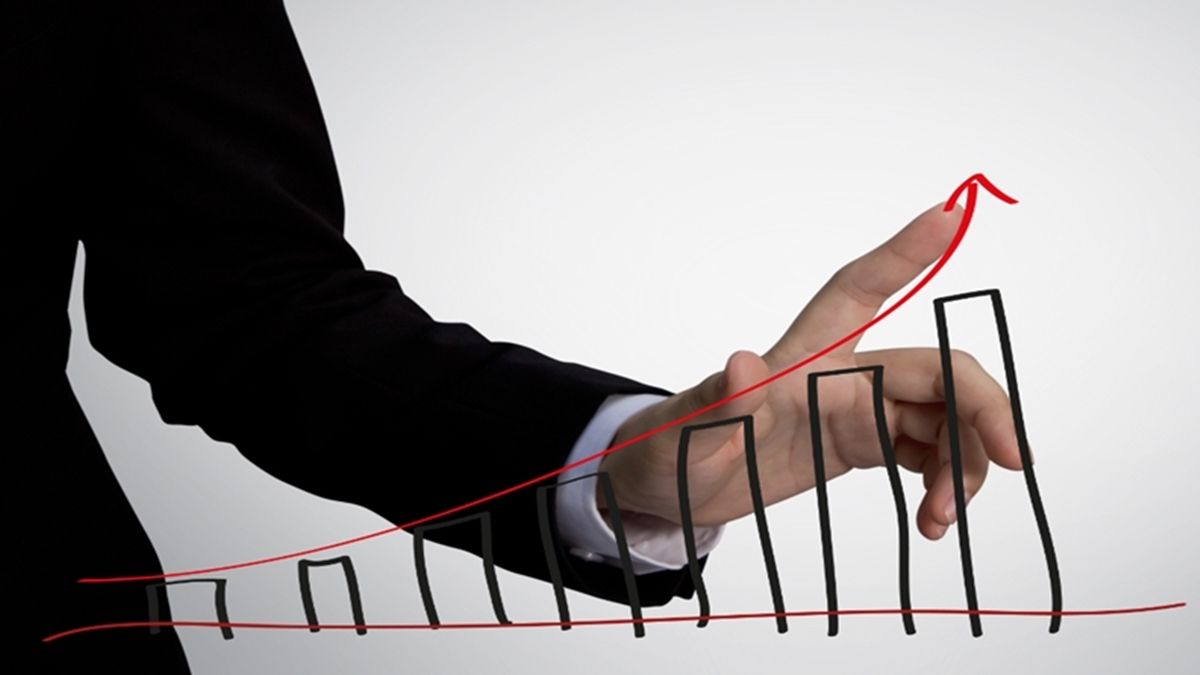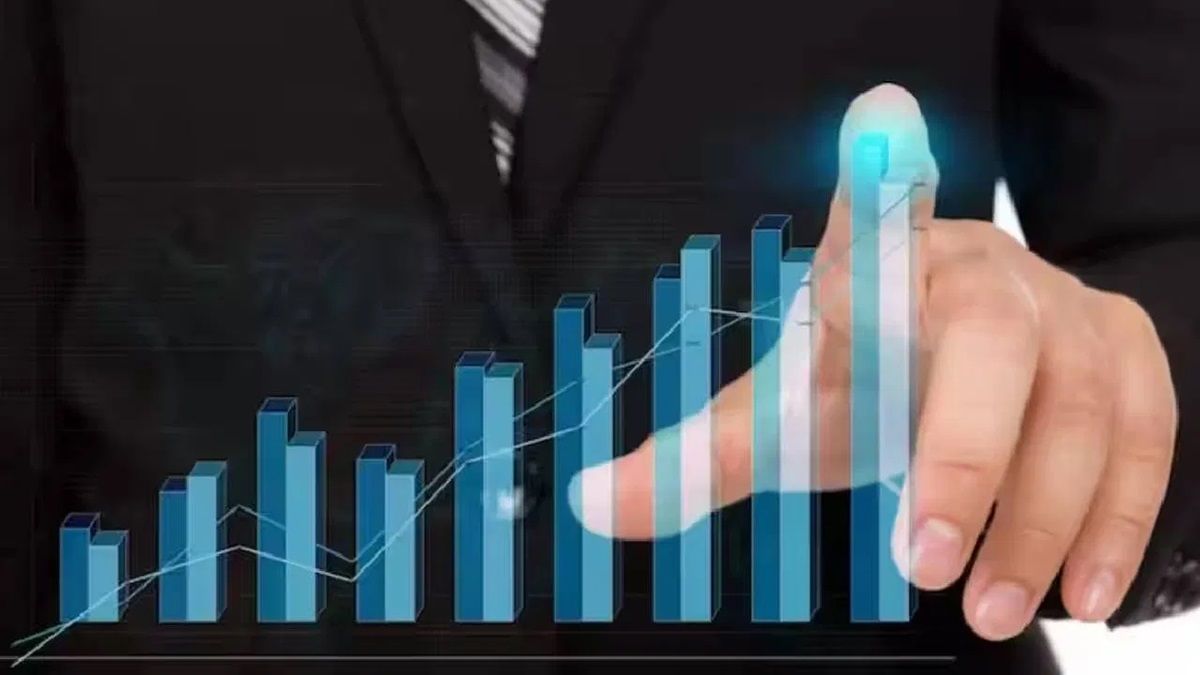Italy is a country of mysteries, but not so much of secrets. Right now, the feeling is that it is a great strainer of personal data. Four consecutive scandals have shaken the country in recent months, all with a common element: massive illegal access to confidential databases of politicians, businessmen and celebrities, from the apparent lone pirate to authentic organizations dedicated to finding dirt on anyone. The press and media are periodically filled with photos of ministers and celebrities who have been spied on, along with others who have been commissioned to spy on them. “It is a system of blackmail and extortion, but in the worst case we are facing a crime of subversion,” said the Prime Minister, Giorgia Meloni, about the latest scandal, the most serious, although she already lamented a few weeks ago about that every day “our daily dossier” comes out. She feels like the target of conspiracies to bring her down, although in reality she is just one more of those spied on, among politicians of all stripes.
The latest case, discovered this week, seems the most worrying due to the volume of violated information being handled. The Prosecutor’s Office estimates that a network has accessed the data of 800,000 people and has made 52,000 accesses to the databases of the security forces, although the Ministry of the Interior has assured that there has not been massive looting, but rather specific accesses. At the moment, there are six officials accused of having done this in exchange for money.
The plot has at its center a private investigation agency, Equalize, located next to the Duomo in Milan, and five other companies with apparently unlimited access to all the most secretive data files, from the police to the courts or social security. It would even have entered the emails of the President of the Republic. It has also penetrated the phones and computers of its victims. “With the information we have we can ruin the reputation of all of Italy,” boasted one of those involved in a conversation recorded by the police. This time, among others, the president of the Senate, Ignazio La Russa, have appeared as targets; the former prime minister, Matteo Renzi; the president of the energy giant Eni and also of the Milan football club, Paolo Scaroni, or the former Olympic 100 meters champion, Marcel Jacobs.
Aim? Commissioned work, and companies like Barilla (to find out the source of a journalist) and ERG (listening to workers) have appeared here, or tycoons like Leonardo Maria del Vecchio, from Luxottica, who wanted to spy on his girlfriend and one of his brothers. . The network fabricated reports, smear campaigns, but also, the Prosecutor’s Office fears, could sell information to the highest bidder, including foreign secret services and the mafia. The investigation includes contacts with Israel’s secret services. “Democracy is in danger,” says the public ministry after two years of work, although the judge has reduced the drama of the operation and has granted only four house arrests of the 16 that were requested. The truth will take time to be known, but the press is filled every day with the juicy revelations contained in the records.
In the midst of the stupor over the ease of accessing confidential information, a disturbing fact is that some of these companies actually worked for the Prosecutor’s Office legally, with permission to enter reserved files, and one of them even had a maintenance contract. from the Interior archives. For this reason, when they accessed information, an alert was not raised or a trace was left, as in the case of an agent or official who must justify the procedure to avoid abuses.
Another detail that has caused astonishment is that those responsible for the plot are well-known personalities, they are not just anyone. The Equalize company is directed by a well-known executive, Enrico Pazzali, 60 years old, president of the Milan Fair, and a super police officer, Carmine Gallo, 65 years old, with a long history in the anti-mafia fight.
But this scandal comes after three others, also very high-profile ones. The first, also worrying because it has emerged in the institutions themselves, was uncovered starting in October 2022, before the December elections won by Giorgia Meloni. One of his trusted men, Guido Crosetto, who is now Minister of Defense, saw confidential information published in some media about his income and his fees with companies. He suspected a leak from the secret services to influence the campaign, and filed a complaint. It gave rise to a case that grew until no less than a former prosecutor of the National Anti-Mafia Directorate, Antonio Laudati, and a lieutenant of the Financial Guard, Pasquale Striano, who was at the head of the group dedicated to banking and financial operations, were accused. .
The investigation by the Perugia Prosecutor’s Office has discovered that between 2019 and 2020 this high command downloaded more than 200,000 documents from its database, and another 30,000 until 2022. Operations that are difficult to justify for work reasons, since in a single day, for example , 10,000 were downloaded. This period of time also coincides with the publication in news media of bank details of personalities such as two prime ministers, Matteo Renzi and Giuseppe Conte, and also athletes, actors and executives. The Prosecutor’s Office continues to investigate, especially whether he acted following orders or instructions from someone else, apart from journalists who later published information.
In the other two known cases it seems more like pirates who have acted alone, but with very different profiles. One is a hacker professional, but the other is a bank employee who, if his explanations are to be believed, simply had the habit of snooping into celebrity accounts. He hacker His name is Carmelo Miano, 24 years old and arrested on October 1. He had penetrated the Ministry of Justice database and stolen the personal passwords of 46 magistrates to access their emails. All from his small apartment in Rome.
He was a computer genius who had already been investigated in 2021, accused of managing a virtual market on the so-called deep internet, where he sold weapons and drugs. Precisely as a result of that operation, Miano wanted to spy on the prosecutors who had investigated him and entered the systems of the Administration of justice. He knew how to cover his tracks perfectly, and in the end the police opted for the old school: they installed a camera in his house, in front of the computer, to see what he was doing. In the operation, more than six million euros in original bitcoin were seized from him, the result of his activities and of unknown origin.
The last case seems more commonplace, but we will have to see it. It is that of a clerk at a branch of the Intesa Sanpaolo bank in Bisceglie, a town in Apulia with 50,000 inhabitants. Vincenzo Covielo, 52 years old, made 6,637 accesses to the accounts of 3,572 clients between 2022 and 2024, almost all public figures, but also acquaintances and relatives. From Giorgia Meloni herself, her sister Arianna, the right hand who heads the political secretariat of her party and the former partner of the prime minister, the television presenter Andrea Giambruno, to several ministers, the president of the Senate and even the prosecutor of the National Directorate Antimafia, Giovanni Melillo. This employee assured that he did it alone, with no motive other than “mere curiosity” and he did not download or save any information for other purposes. He was fired in August, but the bank already knew what he was doing since October.

